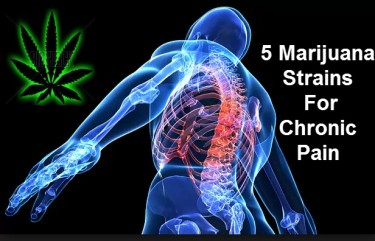
Medical cannabis registration is skyrocketing, is it chronic pain or avoiding paying taxes on cannabis products?
Inflammation, fatigue, chronic pain, anxiety, mental disorders, seizures, high blood pressure, and treating certain disease symptoms are some of the reasons medicinal cannabis is being used as an alternative treatment. Out of all of these, researchers and data analysts have found that chronic pain is the most common condition reported by patients for medical cannabis treatment.
Within the last five years, at least ten states in the United States have legalized the use of medicinal cannabis. Canada and some countries in Europe have also changed their federal laws to allow the use of medicinal cannabis to treat some conditions. This has resulted in hundreds of patients opting for these alternative treatments. Today, the number of enrollments in medicinal cannabis programs is at an all-time high. The total number of applicants and patients in medical cannabis programs in the United States is at least three times higher than in 2016.
This increase in numbers began during the 2020 pandemic, when many states, including New York, reported that thousands of residents had newly applied to participate in the program. According to a study published by researchers at the Annals of Internal Medicine, there are over three million legally registered patients using medicinal cannabis.
As of this writing, 37 US states have approved the use of medicinal cannabis, while 17 states have both recreational and medicinal cannabis programs. The new study, organized by Kevin F. Boehnke, Ph.D., pointed out that the rising numbers were reported by clusters of states with only medical cannabis legalization. In states with both medical and recreational cannabis programs, enrollment has remained the same, but in some states it has decreased.
The study also highlighted the various medical conditions described by the thousands of patients in the program. Although states have different qualifying medical conditions for patients to be enrolled in the program, the study found that one condition was common across all 37 states.
The authors stressed the need for a coherent US cannabis policy. They wrote that these concise guidelines would improve research efforts to provide better medical cannabis drugs and monitor their use. One of the salient conclusions of the study was the request for competent authorities to provide thoughtful regulatory and clinical strategies to monitor the acceptance of medicinal cannabis treatments.
The study, led by Kevin, stated that chronic pain is the most common condition listed for medical cannabis use, regardless of state. Kevin Boehnke commented that their studies attempted to do what other studies failed to do, namely to separate the reasons for medicinal cannabis intake, rather than focusing more on general adult use. The chronic pain researcher at Michigan University explained that prior to conducting this study, he had always wondered about the root cause of massive enrollment in medicinal cannabis programs. He said he kept wondering how many people were on this program because of pain. In fewer words, he said he wanted to fill that information gap, and with this study, he succeeded.
Boehnke eagerly began this multi-year investigation to collect data from public government records, including meeting notes, website releases, and other documents obtained by state officials through the Freedom of Information Act. Boehnke wrote that another of his goals was to pinpoint the state of medical cannabis programs during this time, as state officials and legislators are transitioning to recreational cannabis, as well as amending existing medical cannabis laws.
Many states are changing their cannabis policies to accommodate unexpected restrictions. For example, due to the dramatic impact of changing cannabis laws, some people are no longer able to use as much medicinal cannabis as they want or want. A major reason for an mmj card is economics, since most states don’t tax medical marijuana, unlike recreational marijuana that is heavily taxed. If a user spends X per week based on the cost of an mmj card in their area, it may be in their best interest to get a card since the products are cheaper without a heavy tax burden.
Medicinal cannabis for chronic pain
Cannabis has become a popular alternative medicine for treating chronic pain in both young and old. This controversial plant contains beneficial extracts that have helped medicine find cures for a range of ailments, including chronic pain.
Chronic pain is more common than cancer, heart disease and diabetes combined. It could result from inflammation or nerve damage. In the United States, chronic pain is the leading cause of long-term disability. Most of the best cannabis strains for treating chronic pain are indica strains. This aid reduces pain while keeping the user sedated or relaxed.
Anecdotal reports from users of medical cannabis patients claim that indica strains have helped relieve their migraines and other headaches and joint pains. One can only assume that this claim is true given the increasing number of enrollments in medicinal cannabis programs.
Other reasons for increasing enrollment in medicinal cannabis programs
To manage mood disorders
Anxiety is another common condition listed by cannabis users. Preclinical studies have shown that CBD-based cannabis medications are more effective in treating anxiety and mood disorders such as obsessive-compulsive disorder (OCD) and post-traumatic stress disorder (PTSD).
To lower blood pressure
In 2017, it was revealed that CBD effectively lowers blood pressure in human users. Trials were conducted by stress testing volunteers before and after consuming cannabis, and the results showed that their resting blood pressure was reduced.
To prevent or treat seizures
Muscle spasms are a common requirement for patients enrolling in medicinal cannabis programs in the US, UK, Canada and Germany. Studies show that patients’ needs improve significantly when they start this treatment. The frequency of seizures decreases and other symptoms are relieved.
to fight cancer
Cancer patients use medicinal cannabis treatments to manage symptoms resulting from chemotherapy. Studies claim that cannabinoids are carcinogenic. They can prevent the growth of cancer cells and also induce the death of tumor cells.
Cannabis has several benefits, half of which have yet to be researched or tested. With the results of this latest study, we hope researchers will focus more on improving cannabis-infused medications for chronic pain disorders, as this is the most common reason for medicinal cannabis use. It is worth noting that cannabis has minimal side effects. Therefore, further research could focus on eliminating these side effects.
CANNABIS FOR CHRONIC PAIN, READ MORE..

CANNABIS AND CHRONIC PAIN WHAT YOU NEED TO KNOW!
OR..

CANNABIS STRAINS FOR CHRONIC PAIN, READ MORE!

Post a comment: